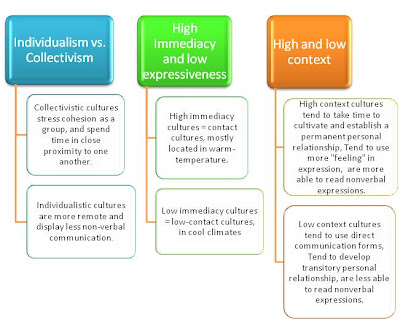Managing diversity appears because of competence among companies that has emerged with the globalization process. All enterprises are looking the way to compete in order to establish their market and be the most recognized by the costumers. To achieve these goals, they use the competitive advantages, including;
1. Human capital
2. Superior Product
3. Low cost position
4. Highly regarded brands
5. Great business processes
In order to become advantages for the company, they all need to have high quality and they need to be difficult to copy by the competitors, These characteristics have been called diversity and it has become a high priority for all companies.
Between all the competitive advantages that companies have, it should be known that the most difficult one to copy is human capital of the enterprise, including the executives, employees and even the suppliers.
Human capital is that difficult to copy due to the fact that factors as: culture, personal experiences, education, relationships, Skin color, etc; vary according to each person. Everybody is different and this is why companies are taking advantages from these differences because there is not possibility that other company can copy these, and being different brings advantages as new ideas, different views from a situation and so on.
Differences among people do not represent the main idea of having human capital as a competitive advantage, it is necessary that when a company is going to hire its human capital, they look must look for people with valuables skills compatible with the firm’s strategic needs, in order to be considered as a competitive advantage for the company.
Because of all of the above, the term managing diversity appear and it is defined as a planning and implementing organizational systems and practices to manage people so that the potential advantages of diversity are maximized while its potential disadvantages are minimized. With this tool, companies are able to guide their employees and manage all differences among them so they can work together to achieve all the firm’s goals.
We are in an era when flexibility and creativity are keys to competitiveness. An organization needs to be flexible and adaptable to meet new customer needs and take advantage of working with people from all around the world, their creativity and knowledge.
EXERCISE
You work within a company specialized in high-tech devices that is going to enter a new market based in Myanmar, Laos, Thailand and Vietnam.
1. Design the company's diversity policy towards employees, customers and Suppliers.
• New employees need to be diverse, this mean that at least a group of 10 new employees should have a women, an internship, a black skin person and so on. We will take into account minorities.
• We will focus in a non-specific target market, we will try to enter into all segments of the customers, we have to be sure that we understand customer preferences, so we can achieve more sales.
• Suppliers should be also diverse, in order to be sure that all our clients preferences in materials, devises, colors, etc; are taken as a priority. To achieve this, it would be good to have a specific supplier for each of those locations where we are entering.
2. Describe the activities that the firm does as part of commitment to their communities programs.
• Our enterprise offers to its employees the opportunity of having trainings about the importance of being different and how to manage that diversity.
• We are opened mind, so we understand employees have different necessities that must be recognized for the company. We have managers that know how to deal with those capacities to be sure that all the company can work in a good environment
• The creation of an organizational culture is a priority for us, all different opinions are important to grow as a union.
3. Write a classified ad for new recruits that support the company's commitment to diversity.
WE ARE EVOLVING, ARE YOU?
VARIED ROLES
We are moving into the future and we need skilled people to help us building a new place for all of us. We work with high technology, create new advantages, and transform fantasy into touchable things that will help the community to be strong enough to compete internationally.
In order to offer the best products to our customers, we need diverse ideas and active participation of our future employees so we can have achieve grate solutions and an excellent customer service, This is why we need new professional working for us in areas as:
Marketing and sales
Technology designers
Project managers
Customers’ service staff
We invite you all to participate in the best company where you are not just an employee; you are part of the family that is transforming the world. In our company you will have opportunity of being while learning from the others, because for us differences represent advantages and not failures.
Send your resume to the following address and feel free of working in a place where everyone is welcome.
E- mail: http://www.hightechcom.com/
REFERENCES AND IMAGES SOURCES:
• http://hrweb.berkeley.edu/guides/managing-hr/interaction/diversity
• http://www.experiencepays.qld.gov.au/pdf/eii/epas/recruit/job-ad-samples.pdf
• http://mundocrown.com/fotos/1544_04%20home-myanmar.jpg
• http://www.el-buskador.com/galeria/data/media/39/Wallpapers_Buddha_Park_Laos.jpg
• http://www.propertyworld.com/assets/thailand1.jpg
• http://www.tuaregviatges.es/fotografia/viajes_a_vietnam_1.jpg
• http://us.cdn3.123rf.com/168nwm/nexusplexus/nexusplexus1009/nexusplexus100900380/7932425-hands-line-planet-earth-the-symbol-of-high-technology.jpg






